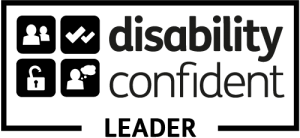Client Success Story: Tracy
Below is the story of Tracy, a young lady referred to us during the pandemic. We managed to help her find employment without even having to meet in person!
The Referral
Tracy was referred to Enable by CIP during lockdown in May 2020. Around 5 years ago she left her role as a Machine Operator as she became too unwell to work – her depression and anxiety made it difficult for her to even get out of bed some days.
Since having support from mental health services, Tracy was able to draw on the coping strategies she learnt and became extremely motivated to develop her skillset and improve her employability. She volunteered for CAHMS, TACT and enrolled in a Level 3 Counselling course. She set herself the goal of becoming a Support Worker before turned 50 but was nervous about making the leap from voluntary work to paid employment again.
The main barriers that Tracy faced in terms of finding employment were:
- Benefits – Tracy was on a range of benefits and was worried that she may be worse off in work.
- Her dream job – Tracy was very specific about the type of work she wanted. She wanted a role where she could draw on her own personal experiences – homelessness, self-harm, sexual abuse – to support others who were going through something similar. Most of the support roles advertised were supporting elderly people or those with learning disabilities
- Lockdown – Tracy finally felt ready for paid work but Covid-19 had put the world on hold and it seemed unlikely that anyone would be hiring
Preparing for Employment
One of the first thing that I organised for Tracy was a phone appointment with the Enable Advisor at Citizen’s Advice Bureau to get a Better Off Calculation. Tracy was able to compare how different hours would impact on her benefits and therefore make an informed choice about how many hours she wanted to work – around 16 hours a week maximum.
From the outset Tracy wanted to disclose her mental health to an employer as it was relevant to the types of roles she was looking for. We took the approach that I would briefly make reference to her mental health when contacting employers, with the aim of arranging a meeting where Tracy could share her story.
Targeting Employers
As Tracy was very specific about the type of work she wanted I did some research on what was out there and then made contact with these employers by phone or email. Usually this would be done face-to-face but with the current circumstances that wasn’t a possibility. I contacted an employer that organises accommodation for people who are homeless and although they did not currently have any vacancies I was asked to email Tracy’s CV over for future reference. Within hours I received a response that they were interested in speaking to Tracy to find out more about her.
A video call was organised for a few days later, and they liked Tracy so much they offered her a 16 hour position starting the following week. The role would be conducting interviews with people when they first arrived at the accommodation. Tracy was extremely happy with this and accepted the job offer.
On-going Support
Tracy and I went through an in-work support plan which was shared with her employer and her care coordinator. The purpose of this is to highlight possible triggers, early warning signs and potential adjustments that could be made to ensure Tracy stays safe and healthy at work. Starting a new role during lockdown comes with its own challenges but Tracy has taken everything in her stride. Tracy has had follow on appointments with Citizen’s Advice and we have weekly catch ups so I can check in on how she is doing.
As Tracy was referred during lockdown I have never met her face to face. Everything has been done via phone/email/video call. She is a great example that with the right attitude and support, even when it feels like the world is on pause, anything is possible 🙂









